- The philosophy of Lake Michigan College, an institution of higher education, is founded on the belief that education is for all who wish to develop their potential. It is fundamental that a community college assist in meeting the educational, career, cultural, wellness and recreational needs of the community it serves.
School Highlights
Lake Michigan College serves 4,243 students (31% of students are full-time).
The college's student:teacher ratio of 17:1 is lower than the state community college average of 19:1.
Minority enrollment is 39% of the student body (majority Black and Hispanic), which is less than the state average of 40%.
Quick Stats (2025)
- Enrollment: 4,243 students
- In-state tuition: $5,472
- Out-state tuition: $6,861
- Student:teacher ratio: 17:1
- Minority enrollment: 39%
- Source: Integrated Postsecondary Education Data System (IPEDS)
School Overview
The teacher population of 256 teachers has stayed relatively flat over five years.
Lake Michigan College
(MI) Community College Avg.
Carnegie Classification
Baccalaureate/Associate's Colleges: Associate's Dominant
Baccalaureate/Associate's Colleges: Associate's Dominant
Institution Level
At least 2 but less than 4 years
At least 2 but less than 4 years
Institution Control
Public
Public
Total Faculty
256 staff
224 staff
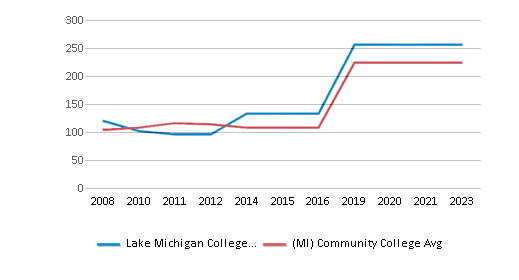
School Calendar
Student Body
The student population of Lake Michigan College has grown by 40% over five years.
The student:teacher ratio of 17:1 has increased from 10:1 over five years.
The Lake Michigan College diversity score of 0.59 is less than the state average of 0.60. The school's diversity has stayed relatively flat over five years.
Total Enrollment
4,243 students
2,154 students
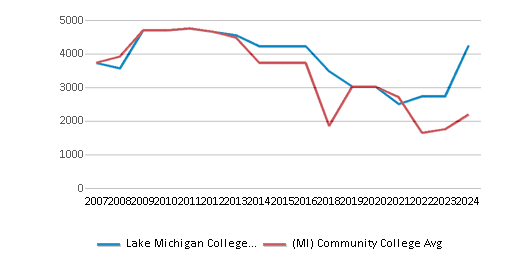
Student : Teacher Ratio
17:1
19:1
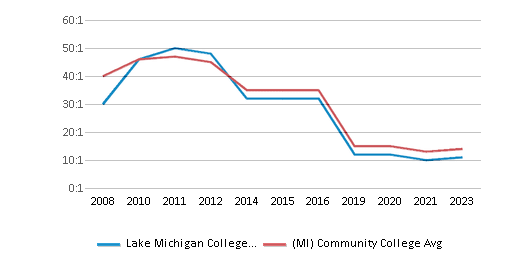
# Full-Time Students
1,318 students
878 students
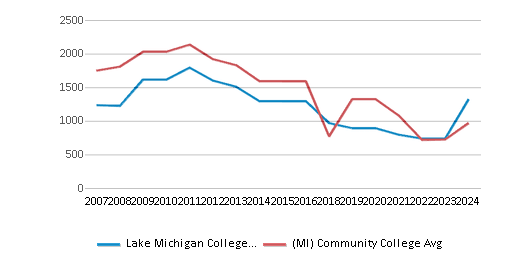
# Part-Time Students
2,925 students
1,714 students
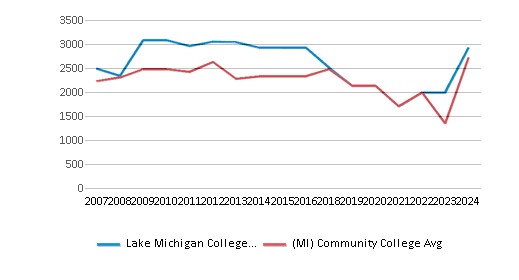
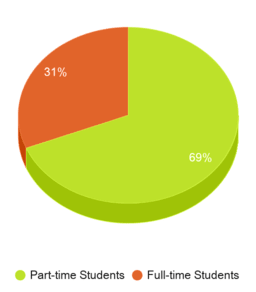
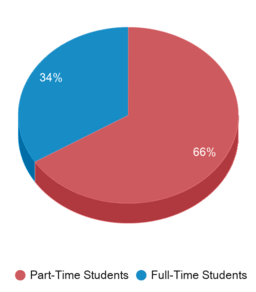
# Enrollment Undergraduate
424 students
225 students
# Full-Time Undergraduate Students
1,318 students
889 students
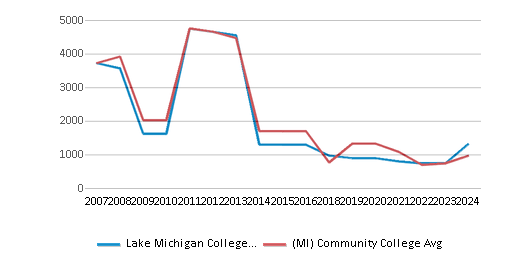
# Full-Time Graduate Students
n/a
4 students
# Part-Time Undergraduate Students
2,925 students
1,714 students
# Part-Time Graduate Students
n/a
4 students
Total Dormitory Capacity
188 students
178 students
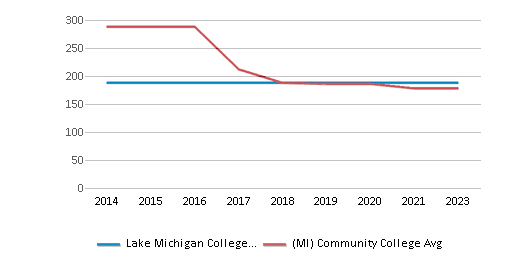
% American Indian/Alaskan
1%
n/a
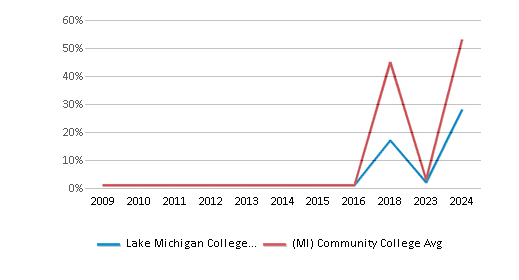
% Asian
2%
4%
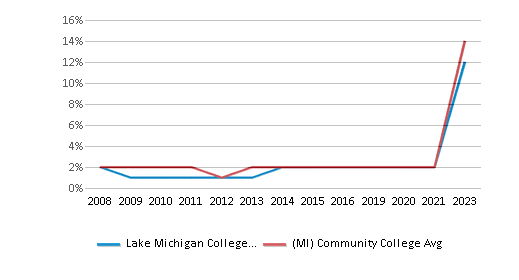
% Hispanic
13%
7%
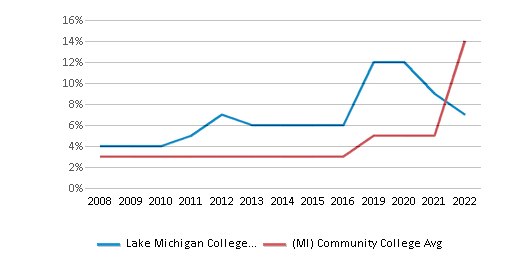
% Black
13%
16%
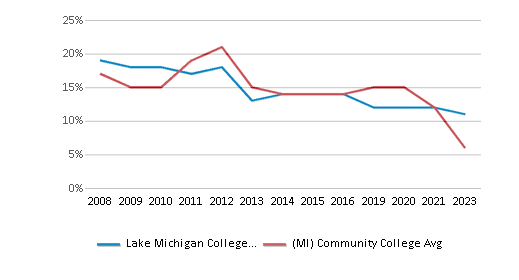
% White
61%
60%
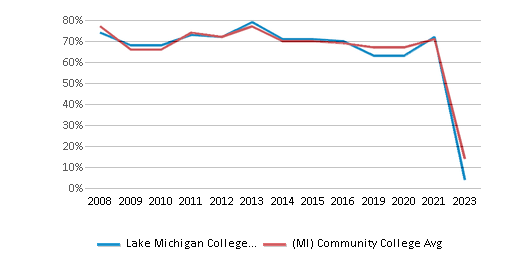
% Hawaiian
n/a
1%
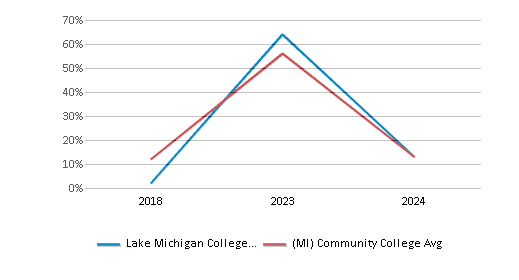
% Two or more races
4%
4%
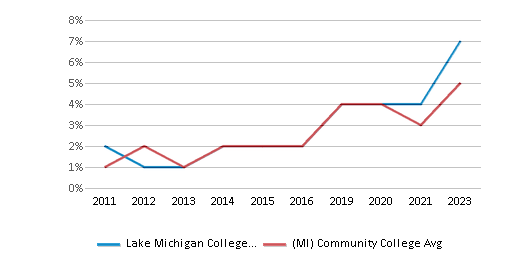
% Non Resident races
n/a
2%
% Unknown races
7%
6%
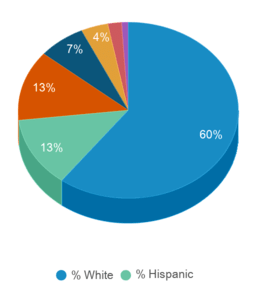
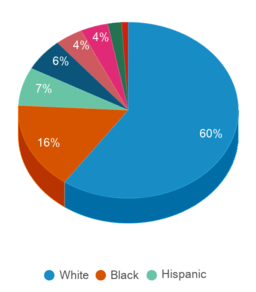
Diversity Score
0.59
0.60
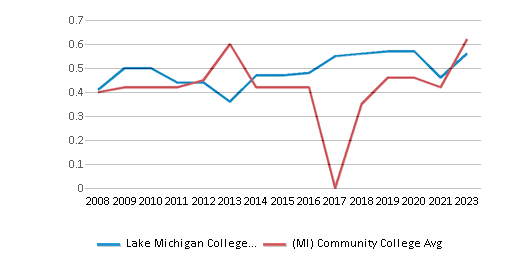
College Completion Rate (Students who graduate in less than 4 years)
0.2101%
0.2881%
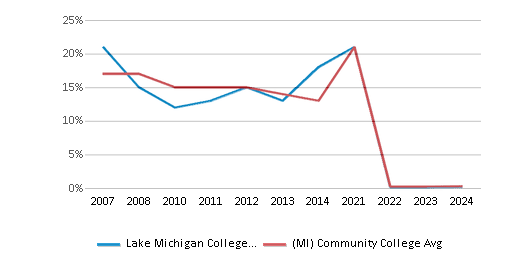
College Completion Rate (Students who graduate in 4 years or more than 4 years)
2.61%
0.2071%
Average Graduate Earnings (10 Years)
$27,300
$30,700
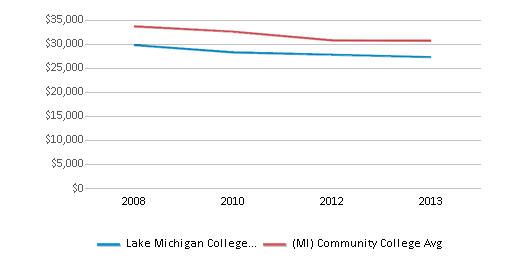
Tuition and Acceptance Rate
The public in-state tuition of $5,472 is more than the state average of $4,952. The in-state tuition has declined by 17% over four years.
The public out-state tuition of $6,861 is less than the state average of $6,896. The out-state tuition has stayed relatively flat over four years.
In-State Tuition Fees
$5,472
$4,952
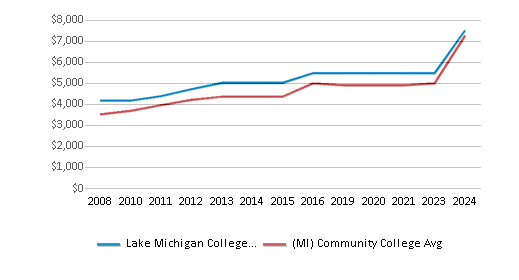
Out-State Tuition Fees
$6,861
$6,896
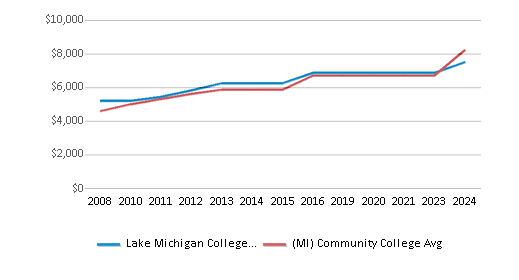
% Students Receiving Some Financial Aid
87%
89%
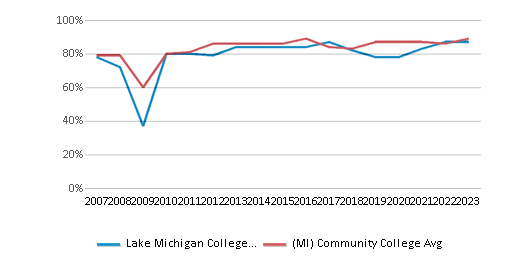
Median Debt for Graduates
$10,638
$11,704
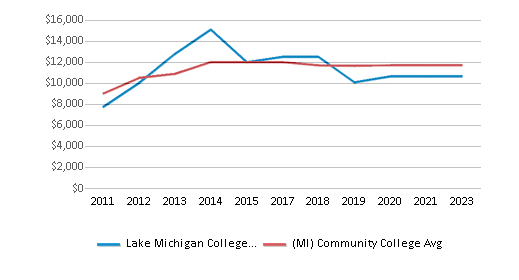
Median Debt for Dropouts
$4,435
$5,500
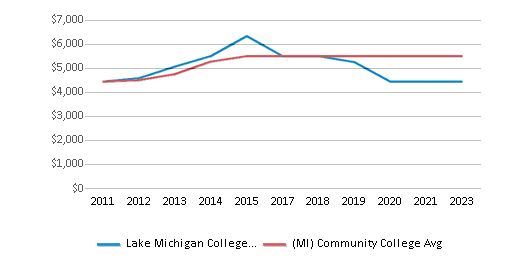
Acceptance Rate
n/a
98%
Source: 2024 (or latest year available) Integrated Postsecondary Education Data System (IPEDS) , School Administrators
School Notes
- Lake Michigan College (LMC), founded in 1946, is a two-year comprehensive community college located in the southwest corner of Michigan. Serving 177,000 residents of Berrien County, Covert Township in Van Buren County, and the South Haven School District, LMC is the region's leader in higher education and serves as a cultural center, regional economic partner, and a leader in diversity and innovation. As a multi-campus college, LMC puts student access to programs and services at the forefront with classes offered at four campus locations, at extension centers throughout the service area, online, and through telecourses. In addition to associate degree and certificate programs, LMC offers customized business training and continuing education through its Community and Business Services division. The Lake Michigan College Napier Avenue Campus sets on a 262-acre site that features a lake, natural area, athletic fields, nature and jogging trails, and lighted parking areas. The academic building houses classrooms, faculty and administrative offices, laboratories, lecture halls, library, gymnasium, Richard J. Pappas Student Services Center, a childcare center and computer labs. The Mendel Center for Arts and Technology is also located on the campus. It serves as a performing arts center with the 1,500-seat Mainstage Theatre and the 246-seat Hanson Theatre. The center is also home to conference and meeting facilities including the 14,400-square-foot Grand Upton Hall, the Louis and Fedrick Upton Telecommunications Center and the Advanced Technologies Training Center. Also located on the Napier Avenue Campus are Siena Heights University and Western Michigan University-Southwest. Each institution offers bachelor's and master's degrees in a variety of disciplines. The College has strong working relationships with other educational institutions including Siena Heights University and Western Michigan University-Southwest. Through these partnerships, area residents have access to bachelors, masters, and doctoral degree programs on the LMC campuses. LMC also works closely with the K-12 public, private, and charter schools to provide dual enrollment/direct credit programs, technical preparation programs, and career exploration events.
Frequently Asked Questions
How much does Lake Michigan College cost?
Lake Michigan College's tuition is approximately $5,472 for In-State students and $6,861 for Out-State students.
Recent Articles

Obtaining Your Bachelor's Degree at a Community College
Explore the evolving landscape of community colleges offering bachelor's degrees, addressing affordability, accessibility, and workforce needs.

A to Z of Community College Certificates and Courses
From business and healthcare to technology and skilled trades, the article showcases the breadth of options available to students seeking to enhance their knowledge, develop new skills, or pursue career advancement.

What is a Community College?
This comprehensive guide explains what a community college is, its history, and its role in higher education. It covers the types of programs offered, differences from four-year colleges, benefits of attending, and important considerations for prospective students, providing valuable insights for those exploring educational options.









